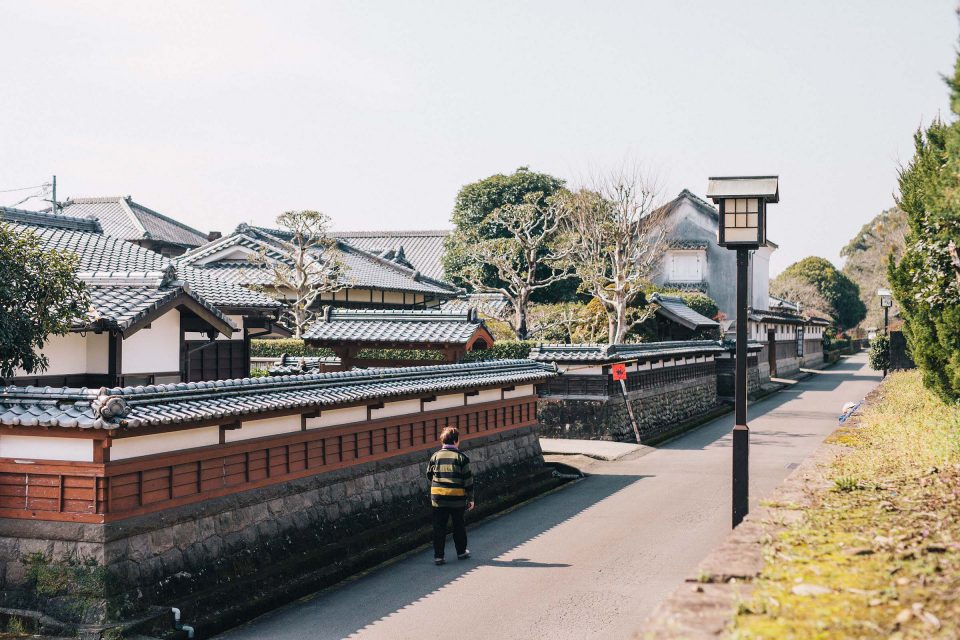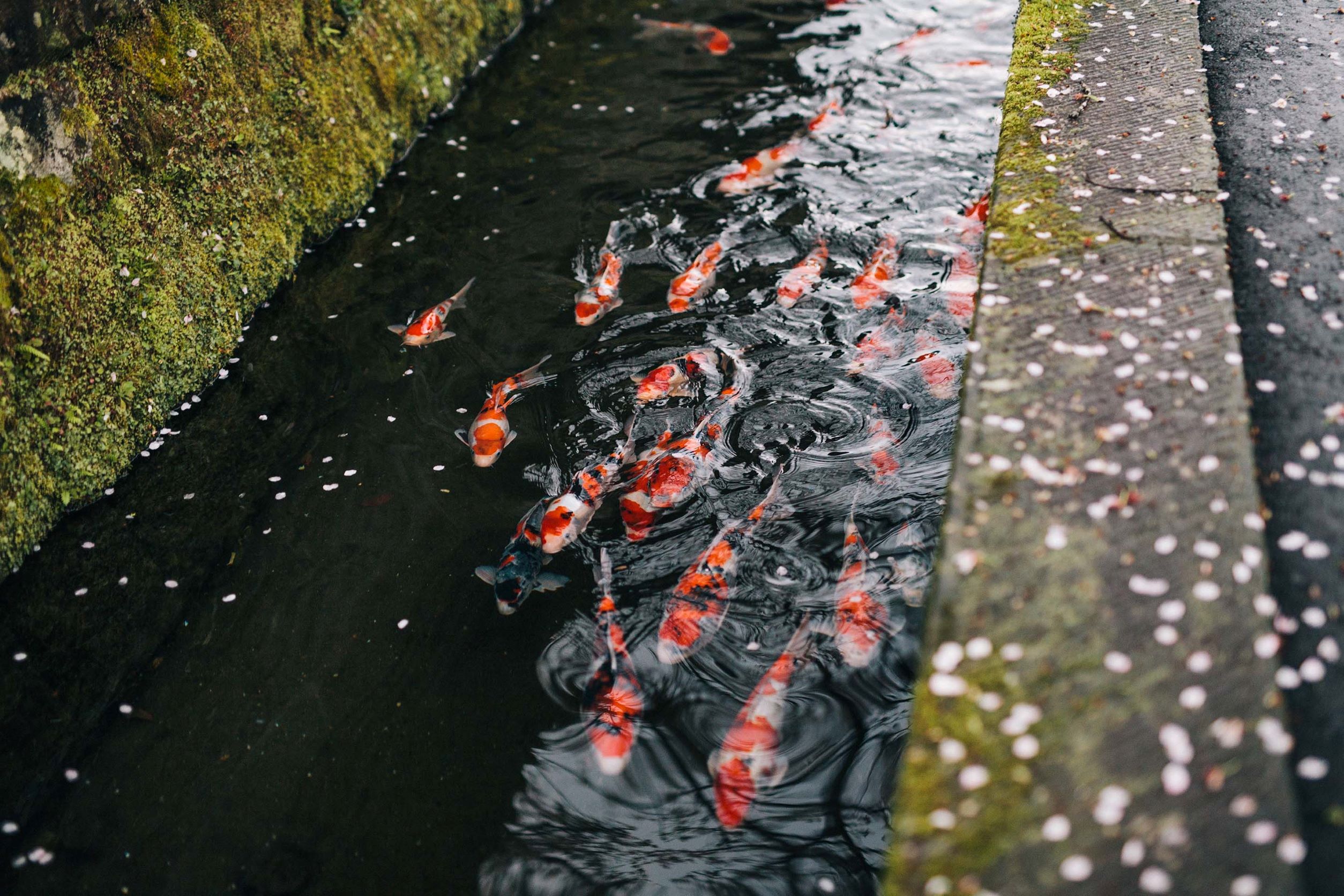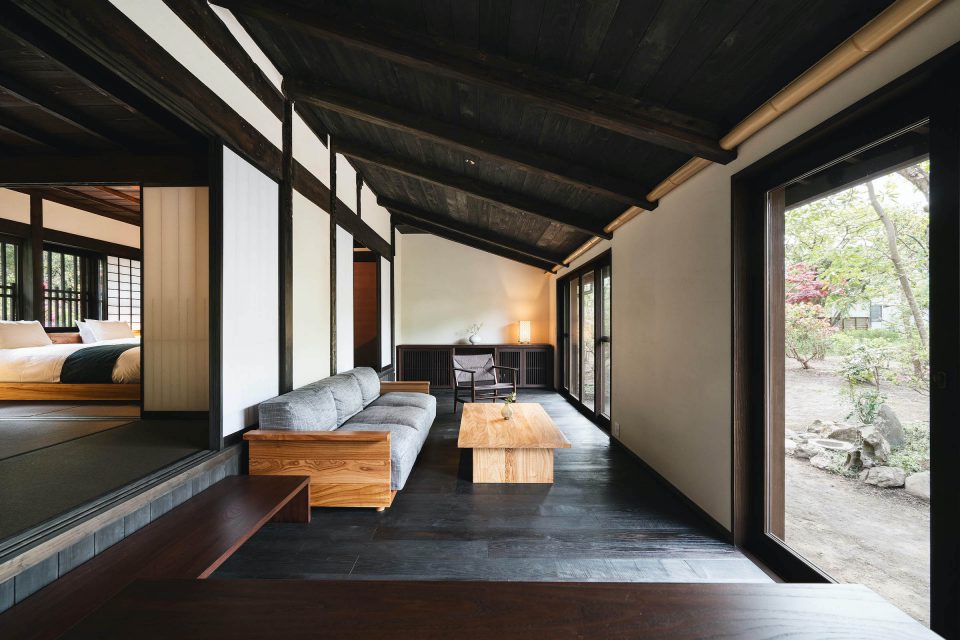Kiraku Obi Katsume & Ohya
A pair of traditional samurai-style residences turned luxury lodging facilities in the town of Obi in Nichinan City, Miyazaki. Obi, a quaint castle town with streets lined with samurai villas and merchant houses, was the first district in the Kyushu region to be nationally designated as an Important Preservation District for Groups of Historic Buildings. Kiraku opened Kiraku Obi as the beginning of a larger effort to help revitalize this historic town.
Story
The town of Obi lies in the southern part of Nichinan City, Miyazaki Prefecture. For roughly three centuries from the Azuchi-Momoyama period (1568-1600) to the beginning of the Meiji period (1868-1912), this area prospered as the 51,000 “koku” (rice yield) castle town of the Ito clan of the Obi domain. With Obi Castle at its center, the beautifully preserved neighborhood is lined with traditional samurai residences, elegant gates, and walls made of Obi stone, offering a glimpse into the lifestyle of samurais and merchants during the Edo period. In 1977, Obi was designated as the first Important Preservation District for Groups of Traditional Buildings in the Kyushu region of Japan. While Obi is rich in natural and cultural assets, it has been long been unable to attract visitors (especially overnight visitors) due to little recognition as well as a lack of lodging facilities. Many of these historic buildings had been left vacant and unused for years.
- Obi town
- Koi fish swimming in the streets of Obi
In 2015, Kiraku was appointed by Nichinan City to coordinate the revitalization of Obi, and began working with the city and local residents towards the renovation and utilization of historic buildings, marketing of local content and resources, and other regional revitalization efforts. In 2017, as the first pilot project, Kiraku opened Kiraku Obi, two luxury lodging facilities renovated from traditional samurai residences.
Kiraku Obi is comprised of two private villas, Katsume and Ohya, offered as exclusive stays where guests can enjoy an entire home all to themselves. Katsume is a traditional samurai-style mansion famous for its karesansui (dry landscape) garden, which is said to have been created in the 18th century and has been designated a “place of scenic beauty” by Miyazaki Prefecture. Ohya is also a samurai-style mansion which was originally a “Nagaya-mon” (gatehouse) for a larger, higher-class samurai estate dating back to the Edo period. The original beauty of the homes has been retained wherever possible, including in the structure, beams, ornamentations and more. However, the homes have also been retrofitted with luxuries such as a large wooden “koyamaki” bathtub as well as a full kitchen, providing guests the opportunity to explore and experience this wonderful feudal town like a local.
- Kiraku Obi Katsume (exterior)
- Kiraku Obi Katsume (dining room)
- Kiraku Obi Ohya (living room)
- Kiraku Obi Ohya (irori & dining area)
Following the opening of Kiraku Obi in 2017, the town of Obi has seen an increase in the number of new renovation projects to build new offices, shops, and accommodations from vacant buildings. In 2020, Kiraku was involved in the planning of Nazuna Obi Onsen Resort, the renovation of a large-scale samurai mansion into a luxury onsen ryokan operated by Kiraku’s operating partner, Nazuna.
Kiraku continues to support the revitalization of Obi in cooperation with the city and local residents.
Information
- Opened
- April 2017
- No. of Rooms
- 2 Private Villas
- Operation
- Nazuna Co., Ltd.






